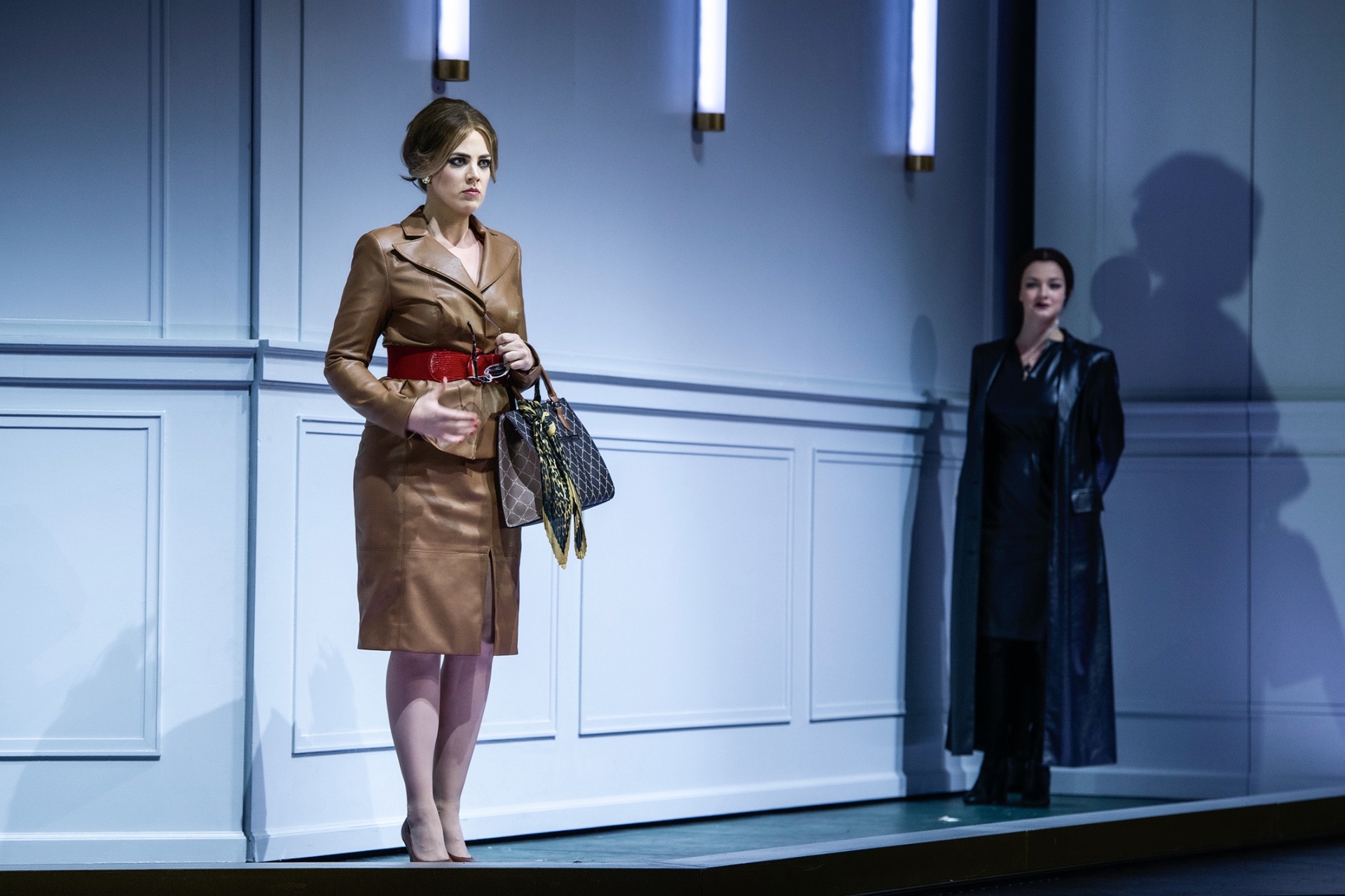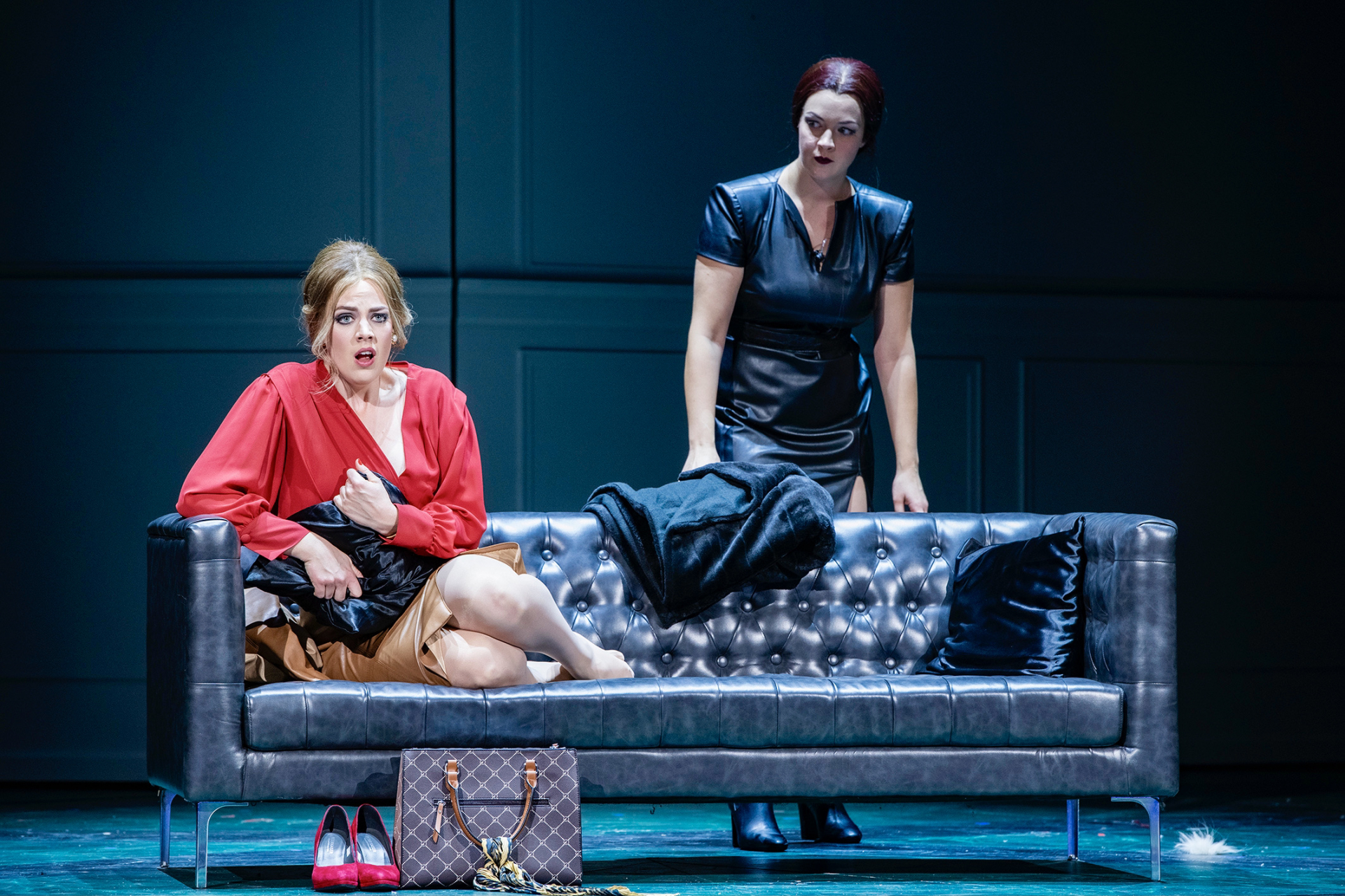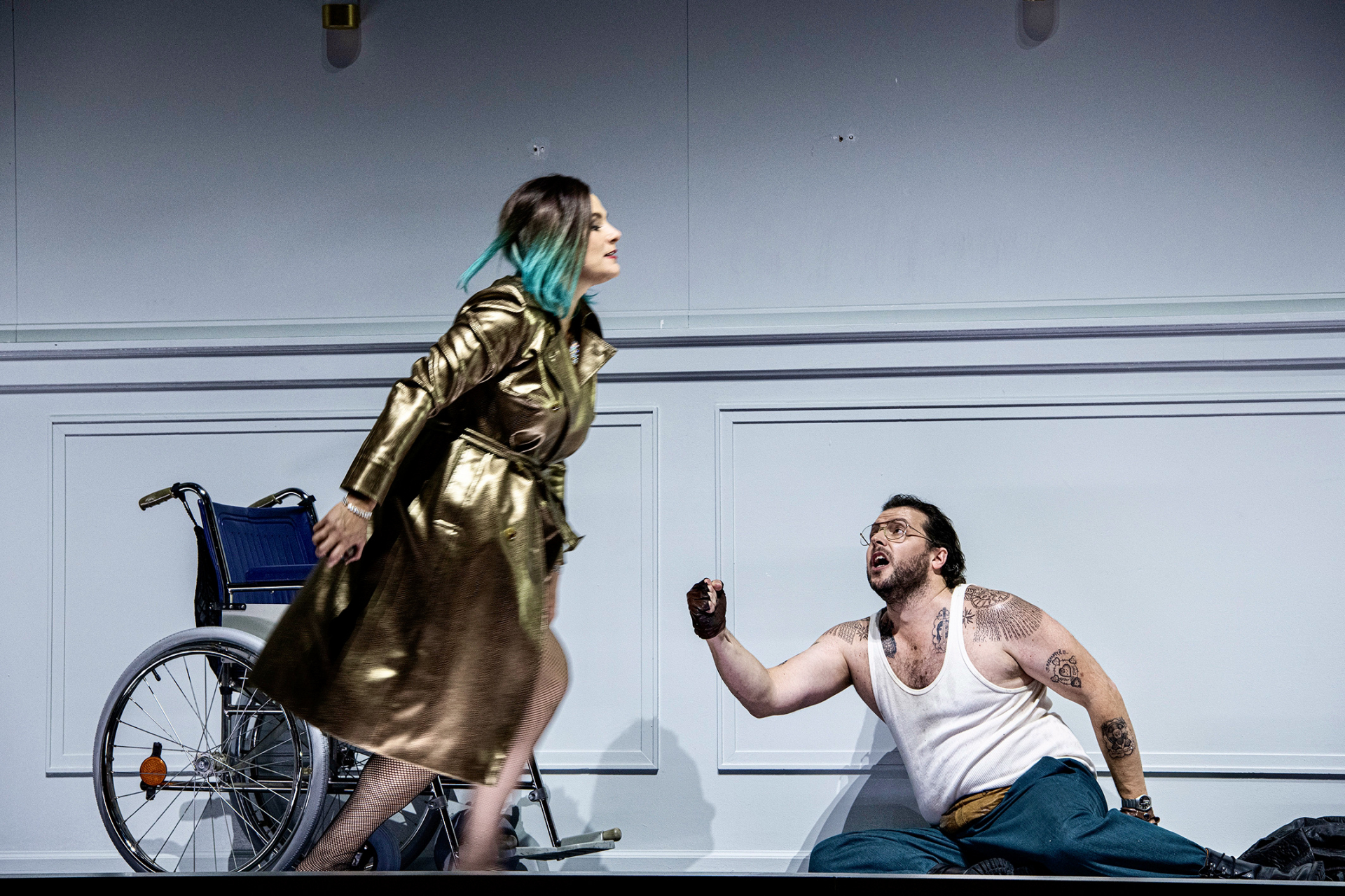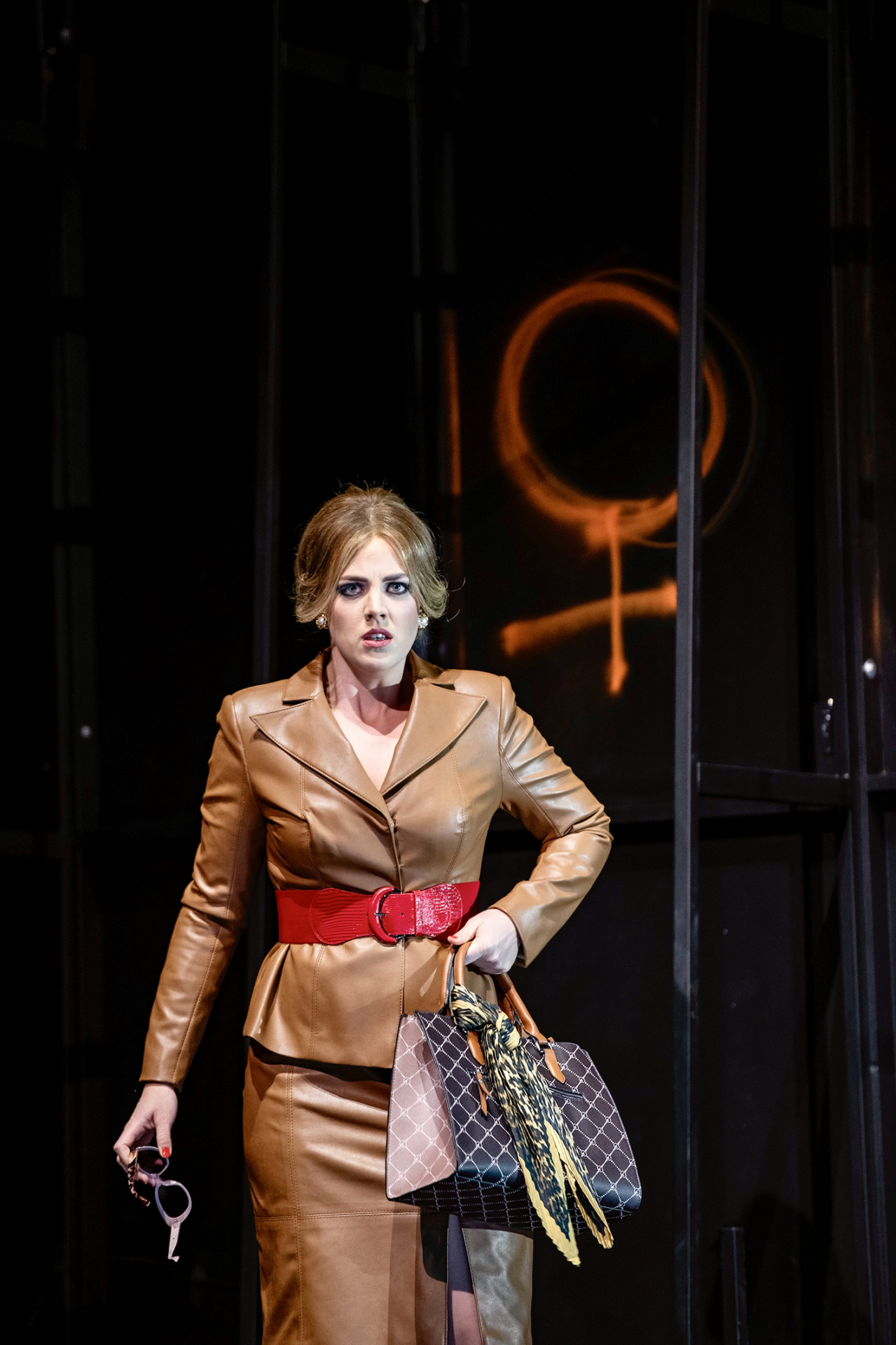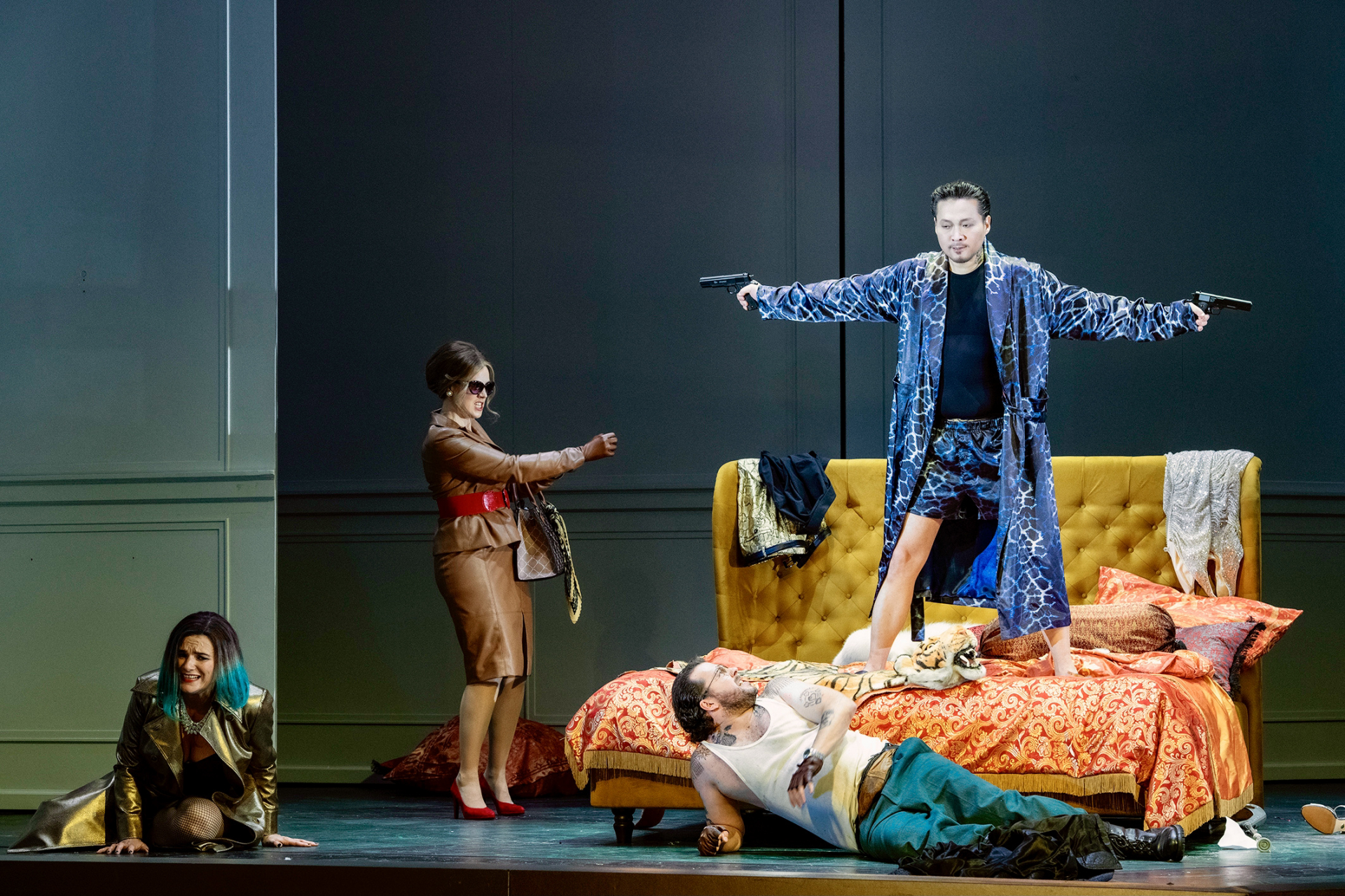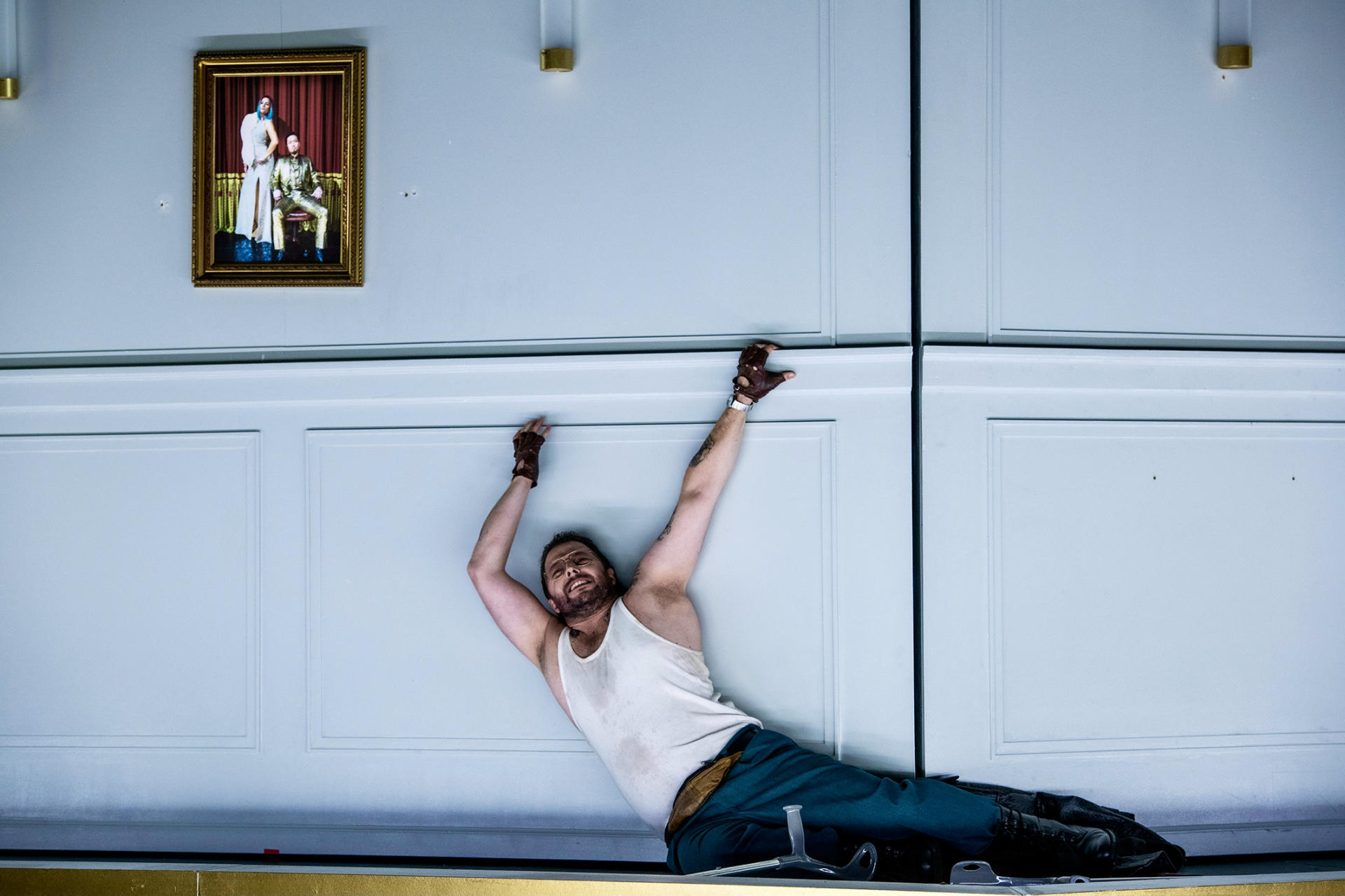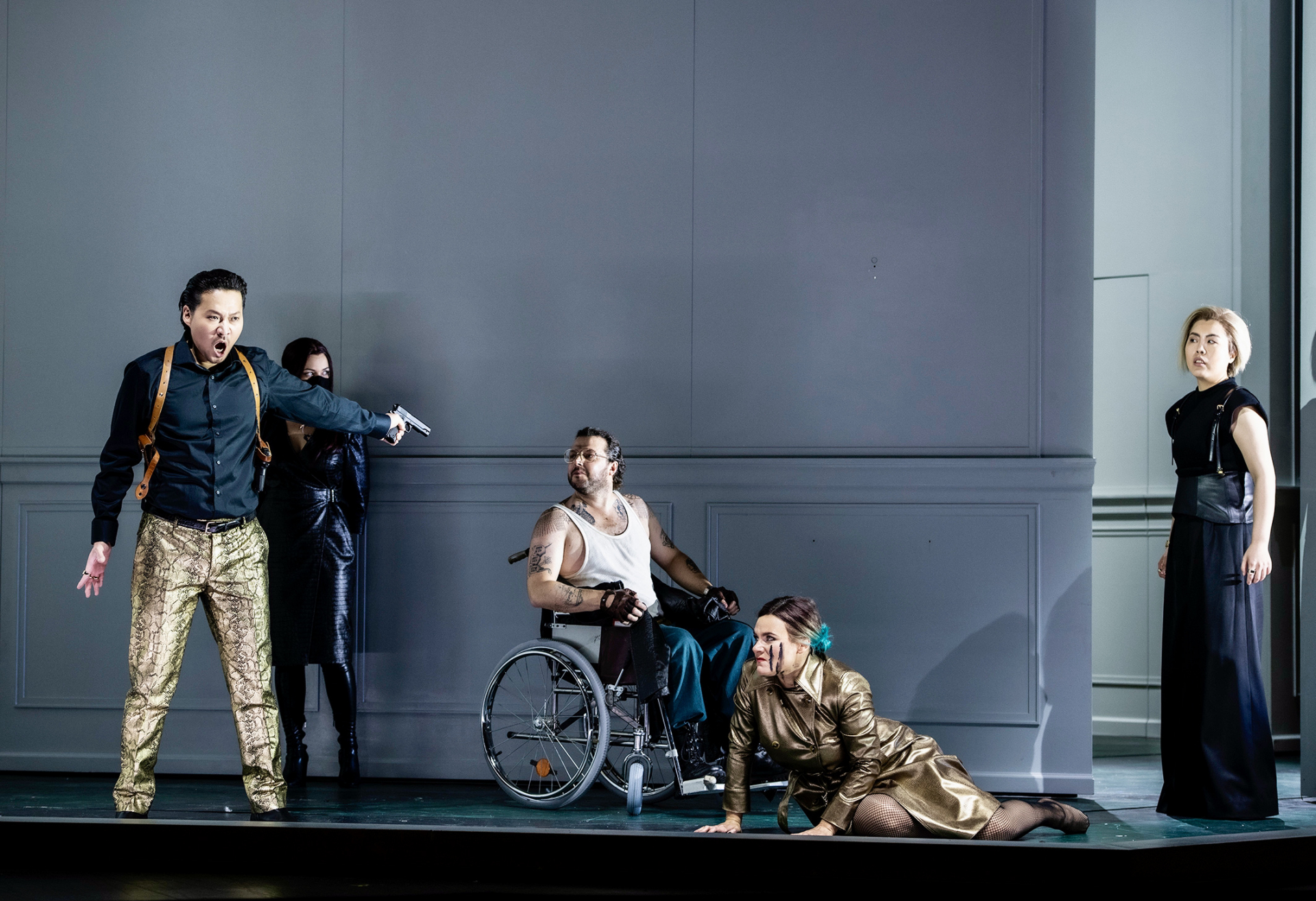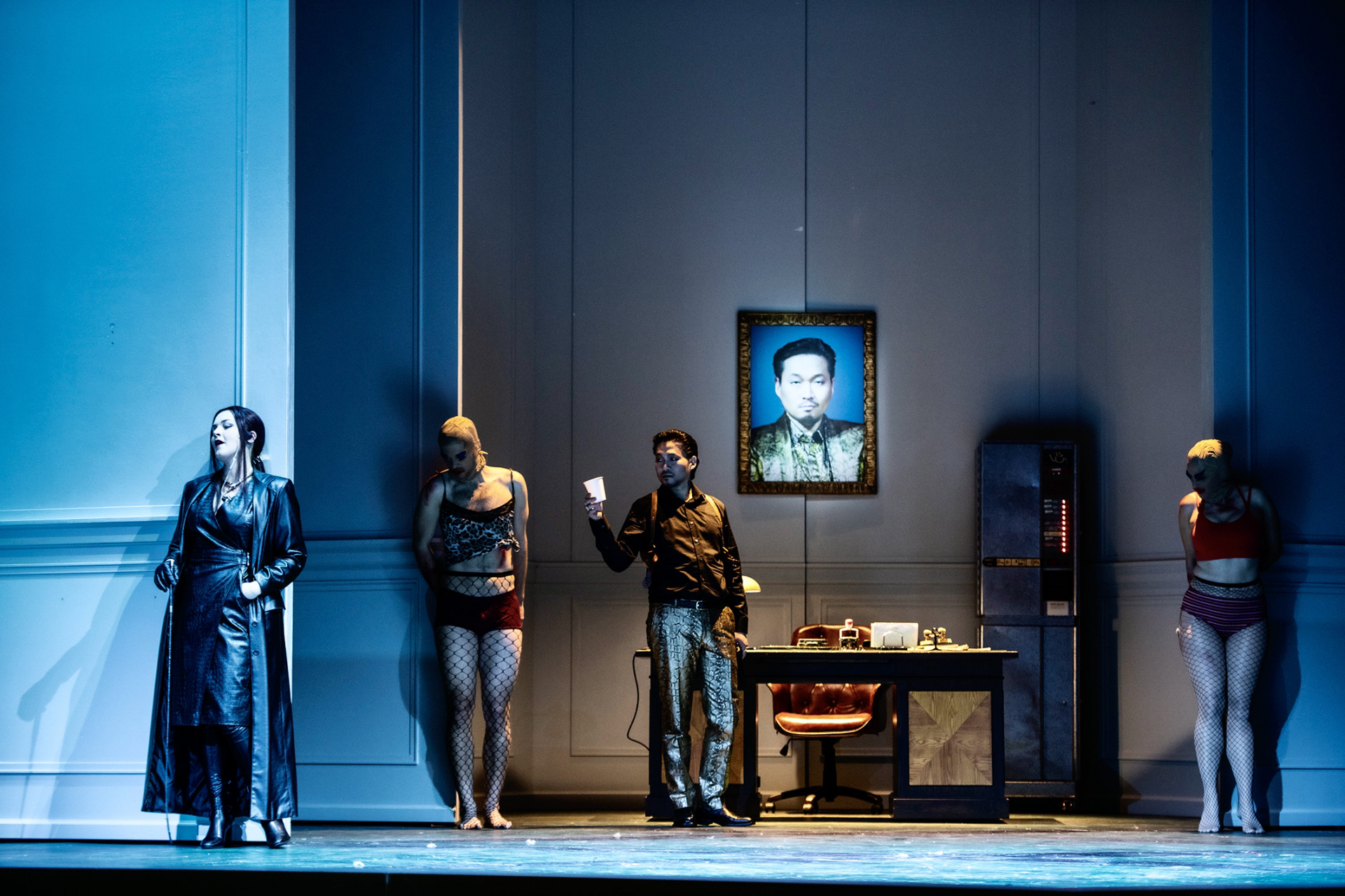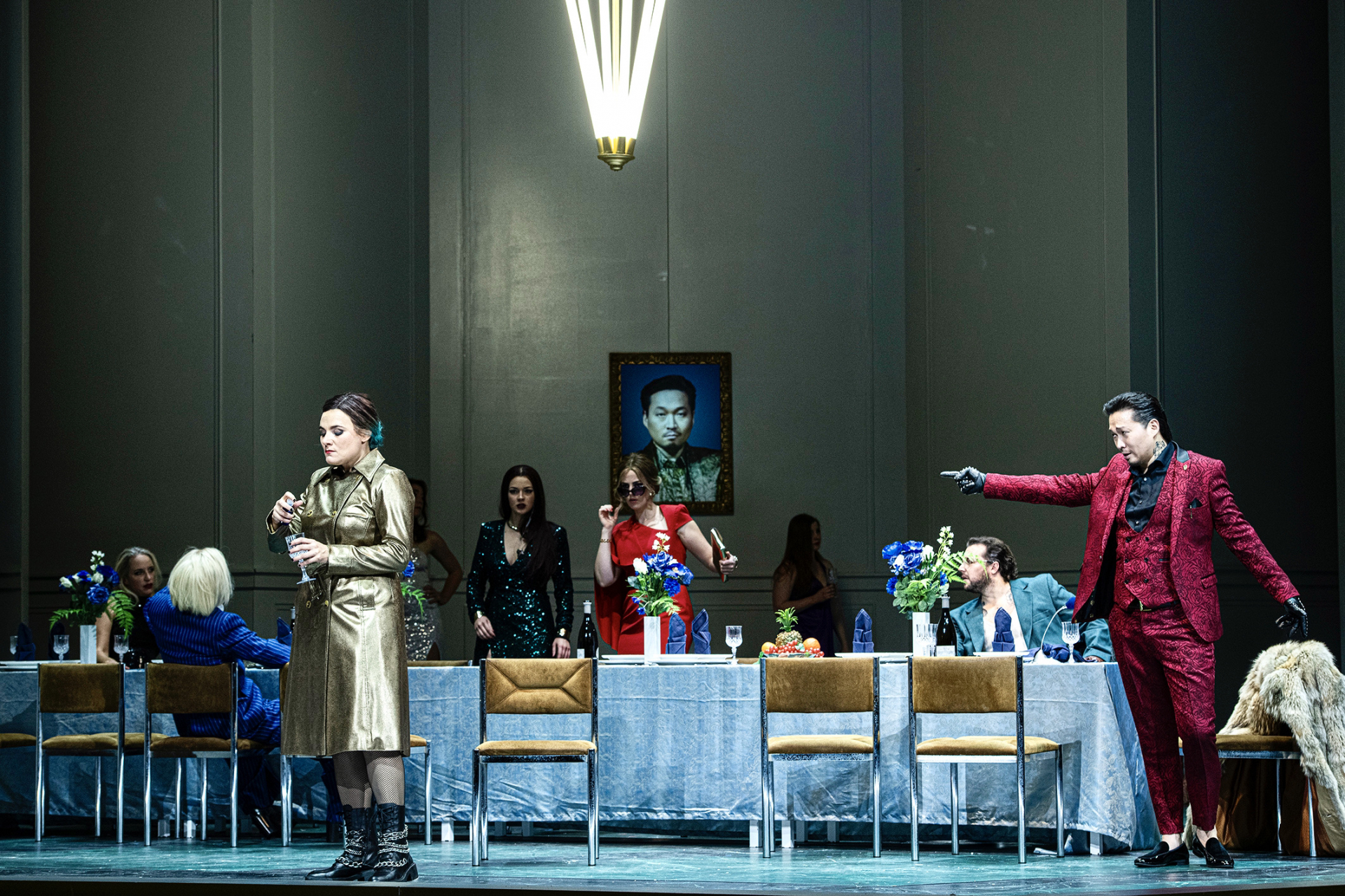Bajazet (Il Tamerlano).
Pasticcio by Antonio Vivaldi.
Staatstheater Nürnberg 2021/2022
Musical director Wolfgang Katschner
Stage director Nina Russi
Set design Mathis Neidhardt
Costume design Annemarie Bulla
Dramaturgy Wiebke Hetmanek
Bajazet Florian Götz
Tamerlano David DQ Lee
Asteria Almerija Delic
Andronico Nian Wang
Irene Julia Grüter
Idaspe Maria Ladurner
Staatsphilharmonie Nürnberg
Statisterie am Staatstheater Nürnberg
Premiere 23 October 2021
Photos © Bettina Stöss
Video recording available on request
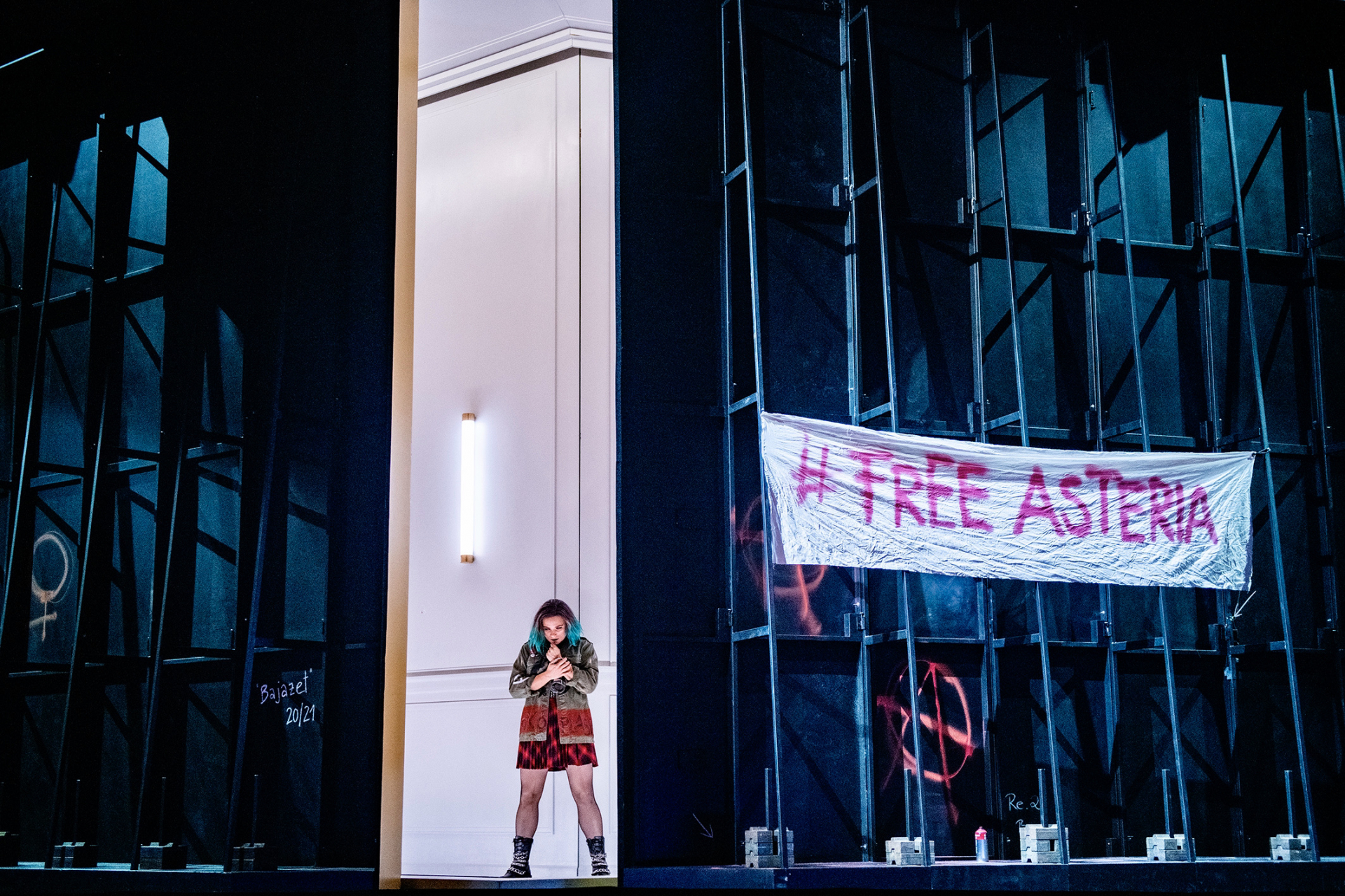

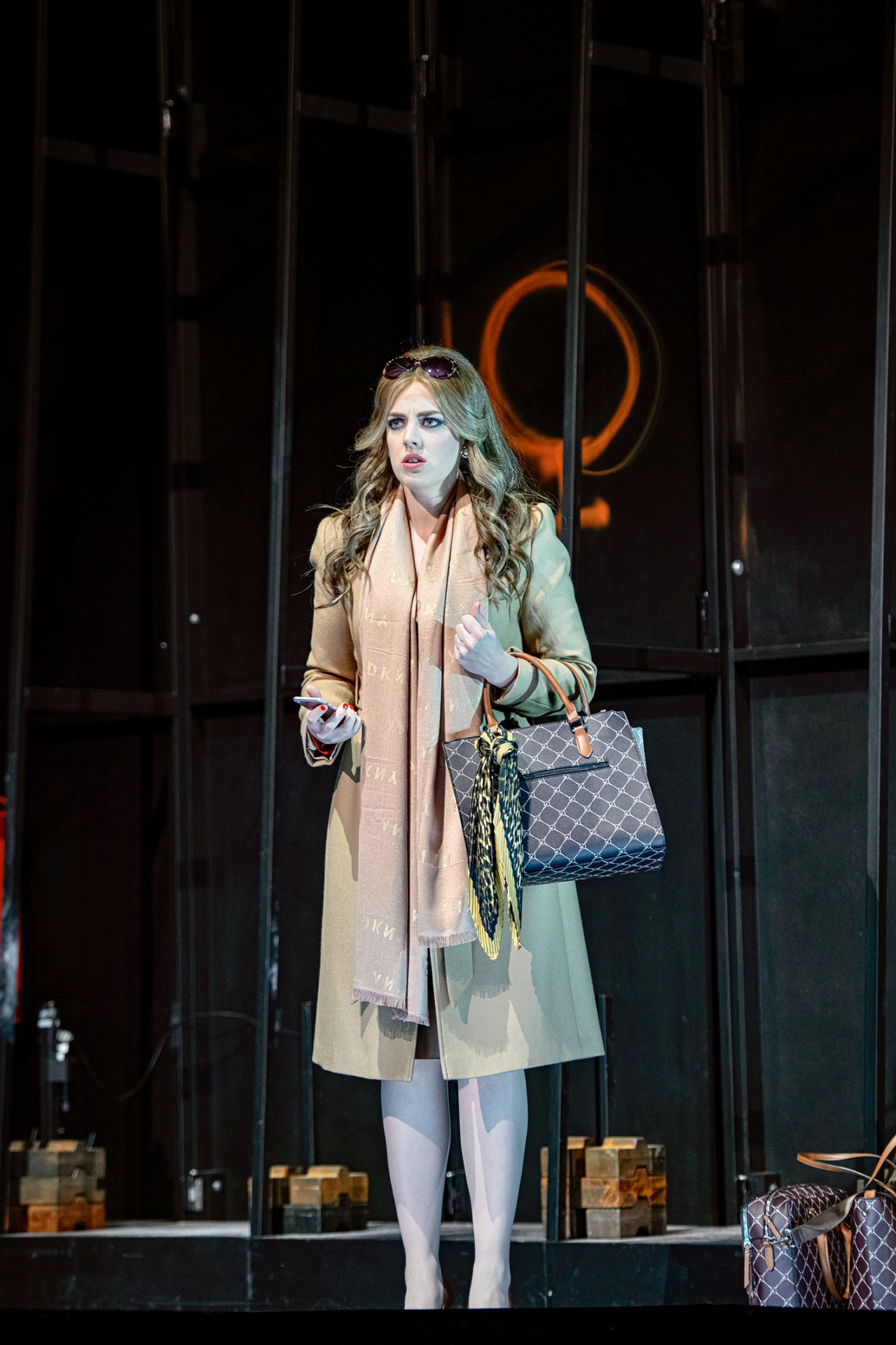



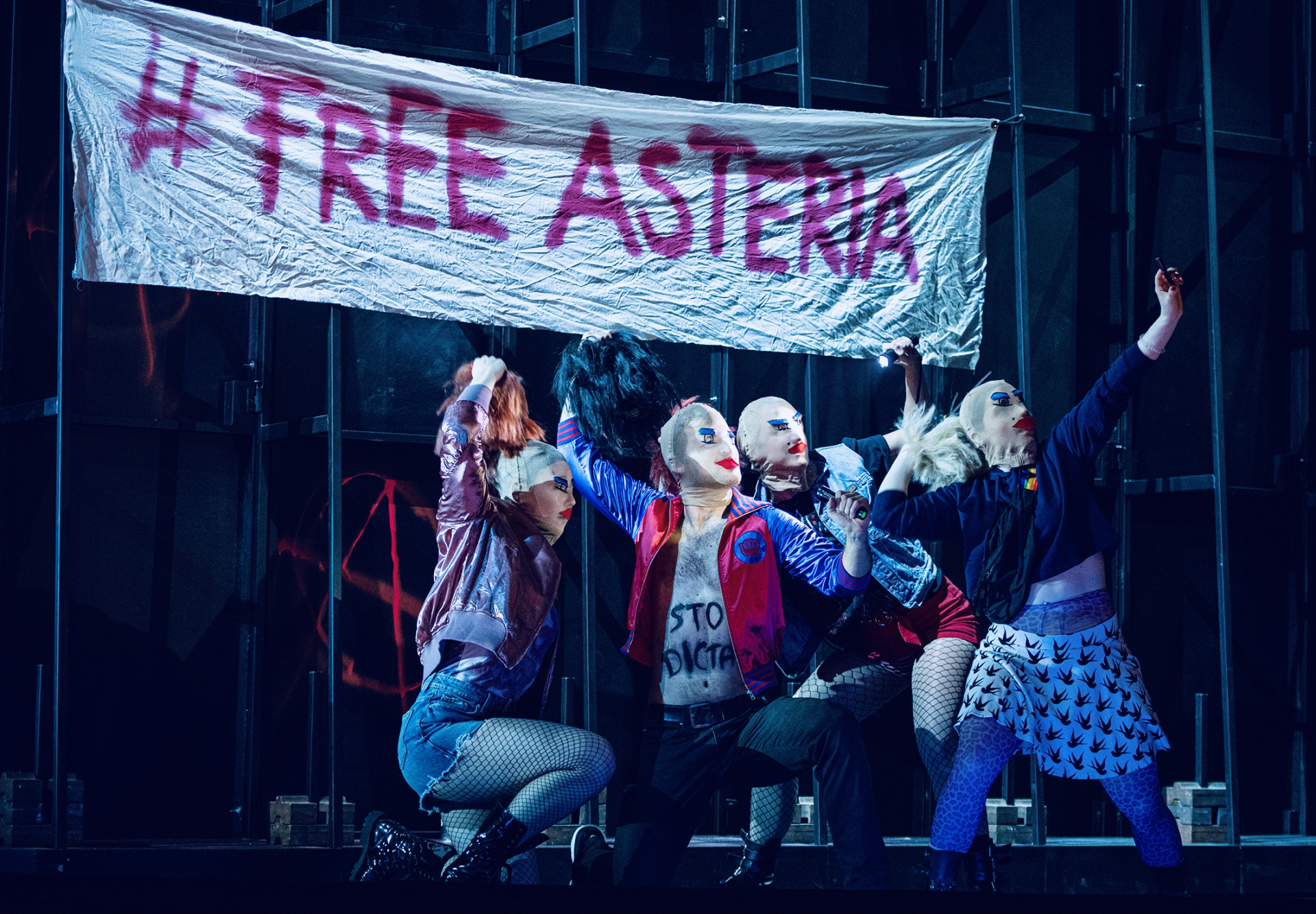
Female activist in captivity.
Statement of the director Nina Russi.
Maria Kolesnikova is in prison in Belarus - together with two female comrades-in-arms, she dared to stand up as an opposition against ruler Lukashenko. Nasrin Sotoudeh was sentenced to 38 years in prison and 148 lashes in Iran - she had campaigned as a human rights lawyer for women's rights and against the death penalty. The activists of Pussy Riot have been repeatedly jailed in Russia for their performances for women's rights, sexual minorities and against the alliance of church and state. The members of the feminist collective FEMEN were persecuted, beaten, imprisoned and forced to flee abroad for their topless actions against sex tourism, human trafficking and the totalitarian system in Ukraine. Their fates, writings and statements - as well as those of other political activists in captivity around the globe - have shaped my reading of Vivaldi's "Bajazet (Il Tamerlano)."
This operatic pastiche, first performed in Venice in 1735, is only superficially about the conflict between the Ottoman sultan Bajazet and the Tatar ruler Tamerlan. The focal point and projection surface of all (male) longings, desires for revenge, intrigues - but also the actual drive of the plot - is Bajazet's daughter Asteria. With her actions, outbursts and her rebellion against the ruler Tamerlan, she dominates, animates and animates the play. She is held captive, tied up and tortured, and is supposed to serve as a sex object for Tamerlan. She defies all these humiliations with anger, radicalism, threats and a poison attack. As Tamerlan's opponent, she fights against the totalitarianism, authoritarianism, machismo and sexism that the brutal patriarchal ruler stands for.
We are in the control center of Tamerlan, a hermetically sealed world that combines prison, representation palace and private chambers of the ruler. Here, Asteria is imprisoned and isolated by the regime as a resister. We experience a labyrinthine system of fluid spaces that constantly change and confuse the inmates with their uniformity and emptiness. One feels constantly monitored in this diamond-like basic structure - which visually takes up the hashtag of social media. In this irritating, intense and yet also intimate atmosphere, the chamber play unfolds with the six protagonists, who with their eccentric characters and extreme emotional states are completely exposed to each other here.
Thus, for me, this opera is an actual political thriller that has a lot to say to us, even in the present day, and can hold up a mirror to our society. Asteria, as a central figure, is a symbol for all the women who today are active worldwide as individuals, activists, peace fighters, women's rights activists - some more radically, with world publicity, others in secret - against oppression, abuse of power and state violence. The opera thus becomes a hymn to solidarity, democracy and freedom of expression - theater art that motivates one to never give up.
(Excerpt from the program booklet)
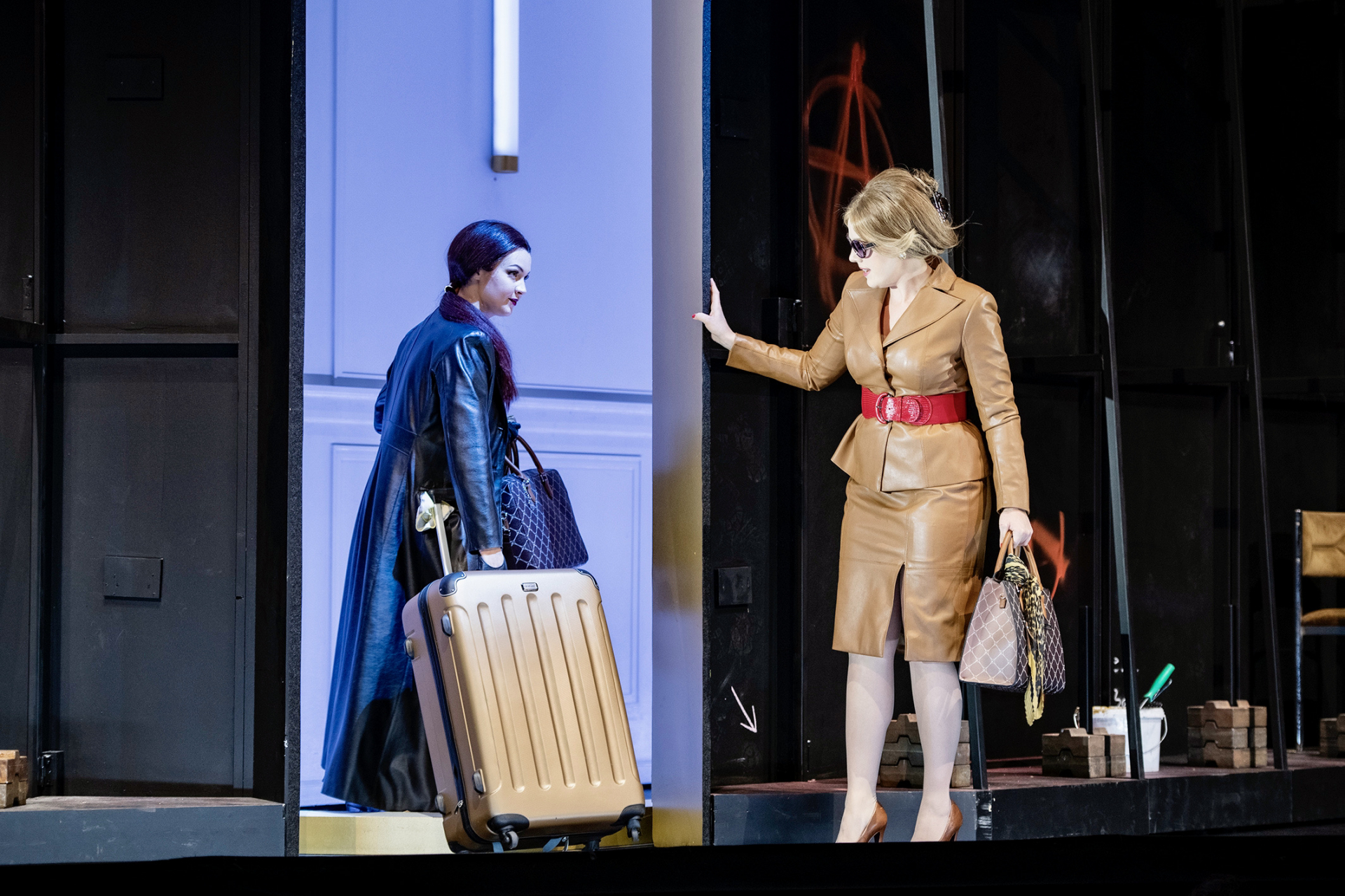
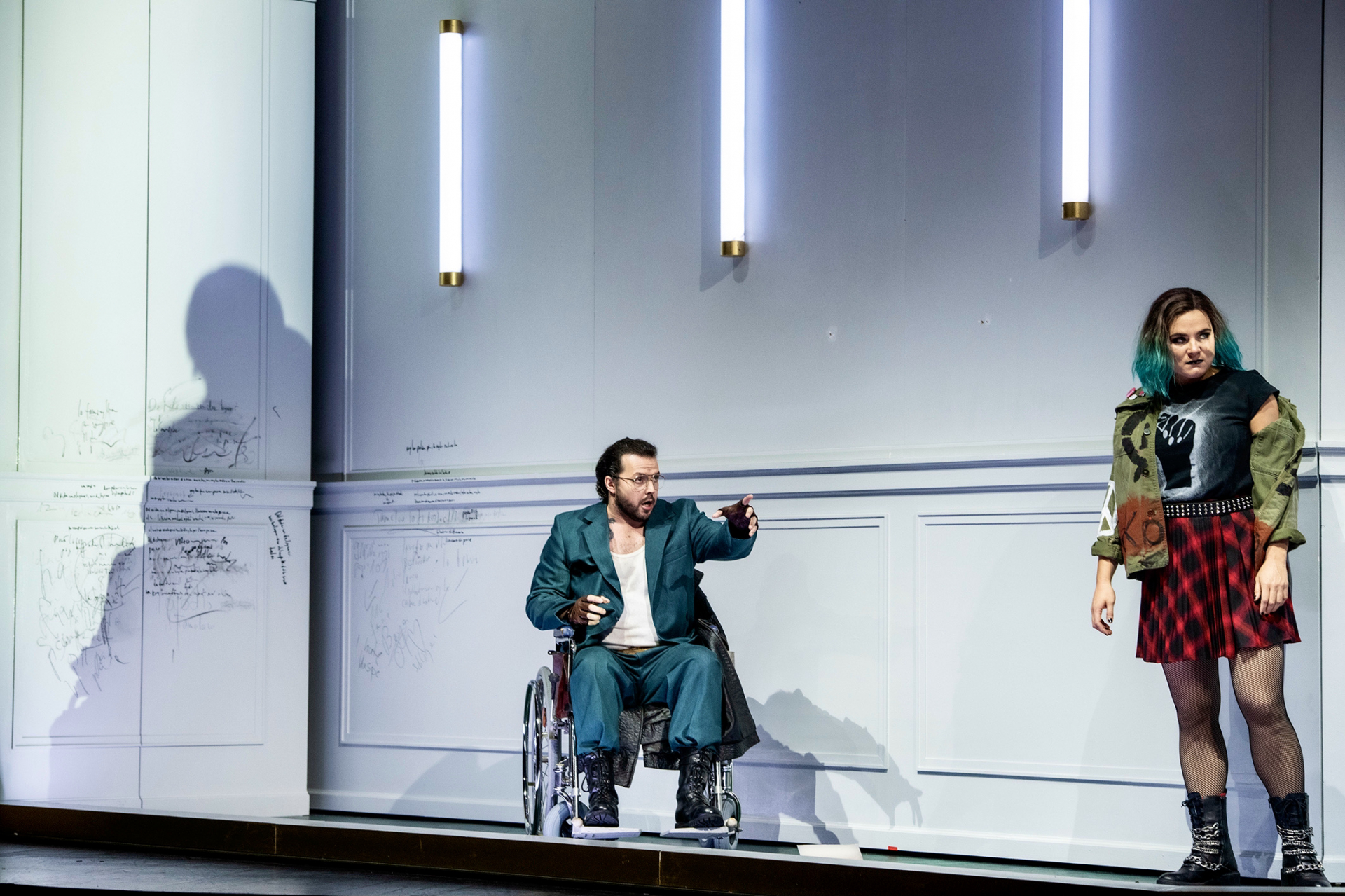
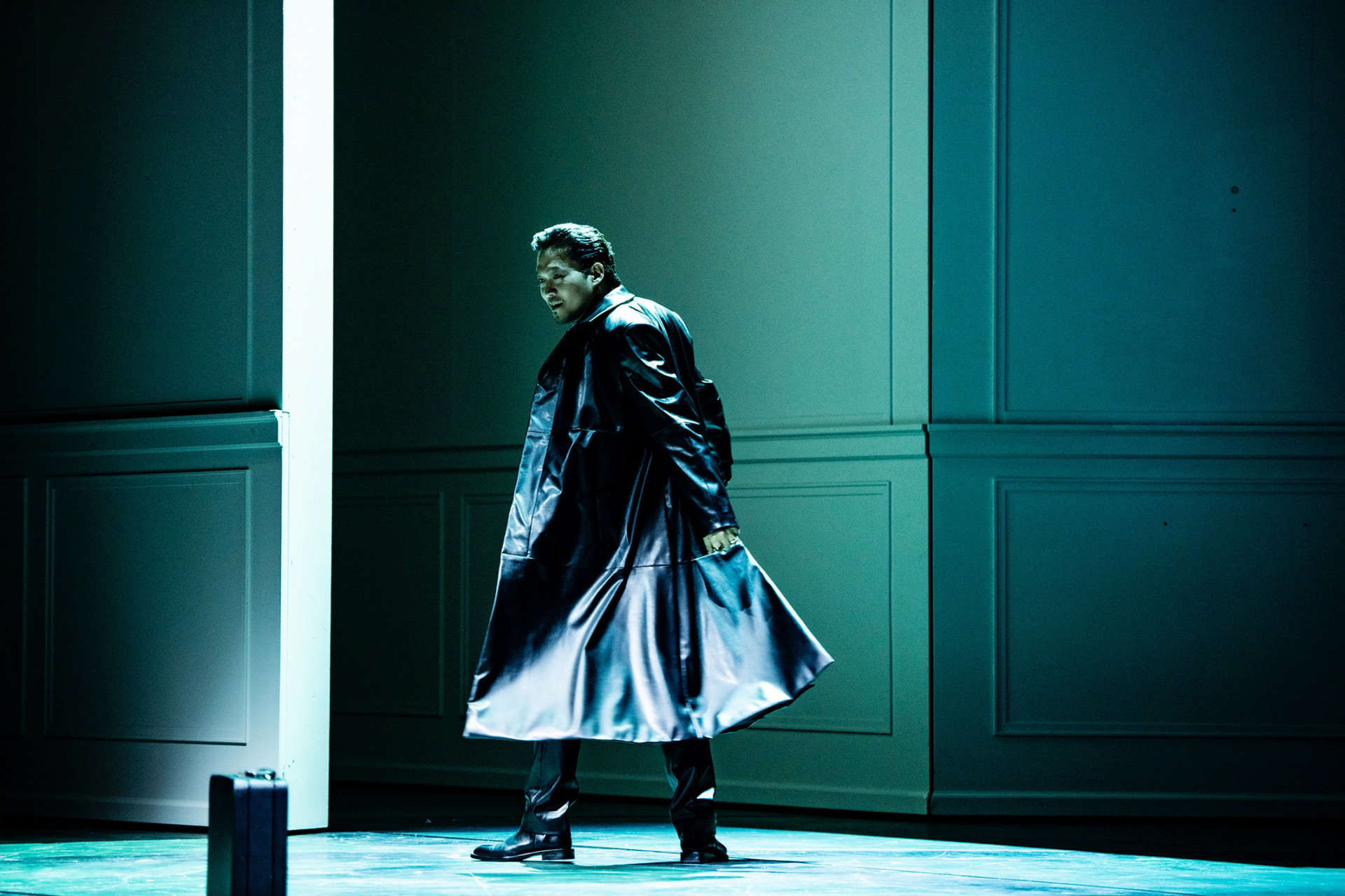

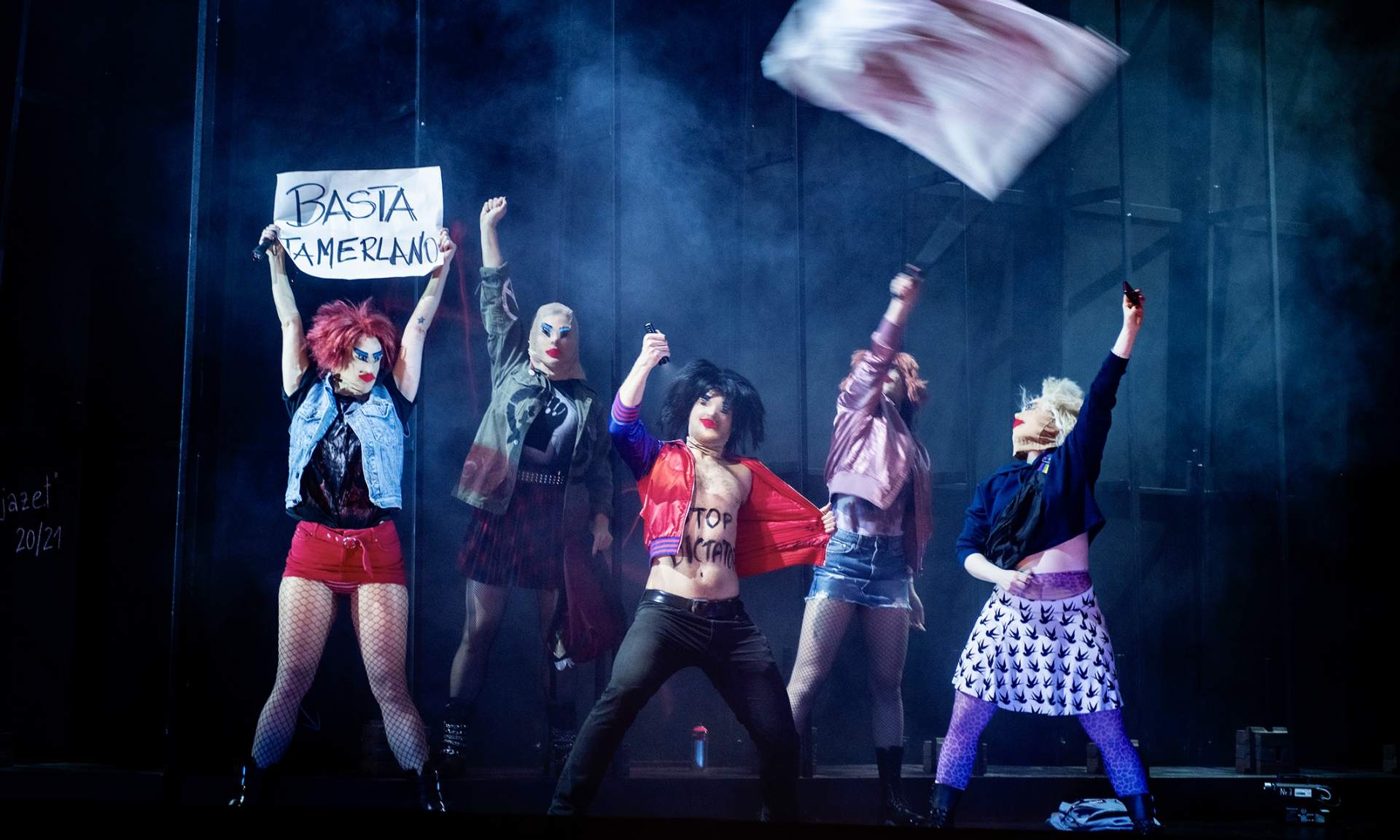

Press reviews
"An exciting production by Nina Russi."
Süddeutsche Zeitung, Michael Stallknecht
"These women raise their fists. Vivaldi's Bajazet earns stormy applause in a cautiously feminist Nuremberg production."
Nürnberger Nachrichten, Wolf Ebersberger
"Vivaldi's pastiche Bajazet (Il Tamerlano) - historically informed, playing in today and successful."
Opern News, Klaus Kalchschmid

